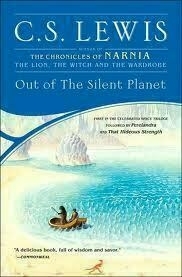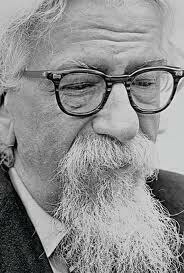sabbath
Advice To My Son: Play, Rest, and Sing
My son just left for college a few weeks ago, and I mailed him a letter so he'd have something waiting for him in his mailbox when he got there. I won't print the whole letter here; most of it was just between the two of us, though if you need to know what I said, here's a summary: I already miss you, but because I love you, I'm glad to see you leaving home and becoming your own man. You make me proud.
These two paragraphs from the end of my letter to him are things I often say to my students, too, so I'm reproducing them here not only for my son, but for all my students, and for anyone else who might benefit from them:
Take time off every week. I mean that. It’s my favorite commandment: get some rest. College can be high-pressure and high-speed. Take a few hours every week, even a whole day, to decompress and not to try to get ahead. It’s like taking time to sharpen your tools; sharper tools cut better, and a rested mind will think better. To put it differently: take time to play every week. I think that John Dewey, Bronson Alcott, and Maria Montessori are all right when they affirm that some of the most important parts of our education are the parts in which we play. I’m not saying you should neglect your classes, of course! Do well in them, and give them serious attention. But then be sure to take time off so that you have time to enjoy life, to reflect on the bigger picture, and to be fully human.
Speaking of rest and restoration, I have to say something about music. You used to wake up singing, and still one of my favorite sounds in the world is the sound of your singing voice. My advice here is simple: make music. Make whatever music gives you joy, just keep making it. Sing or play or whatever, but I think a good life has got to have some songs in it. And dancing. Dancing is good. Rest, and joy, and music, and dancing. These are really good things, things worth having for their own sake. As I write these words I am praying something I have often prayed for you: that your life will be filled with these things.So there it is: Take time to rest each week. Some of our best learning happens when we play. Keep singing. And dance a little, too. Not much matters more than that.
I have no doubt he knows these things already. He's one of the most playful people I know, and his life is a musical one. I wrote these things as a reminder of what's already so good about his life.
It was so good, so very good to have him under my roof for nineteen years. And it's so good, so very, very good to see him going off to live under a roof of his own making. May that roof always be a shelter for rest, for play, and for many joyful songs.
So, How's The Sabbatical Going?
Sabbaticals and Long Service Leaves
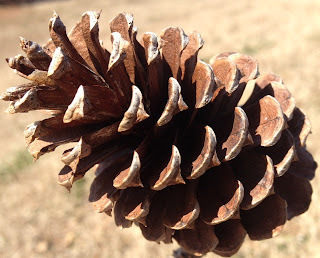 |
| Sabbaticals can be seasons of letting dry husks bear new life. |
Most jobs in the United States don't offer sabbaticals, but I'm fortunate enough to have one that does. Sometimes my kids chide me for choosing a job with relatively low pay, but self-regulated time is something money can't easily buy. I think I chose my career pretty well.
I say "self-regulated time" because my sabbatical isn't early retirement or a long vacation. My job as a college professor has three basic components: teaching, scholarship, and service. A sabbatical frees me from the first of those components, and from parts of the third. More precisely, it frees me from the daily tasks of teaching and service, but I expect that at the end of this year I will be a better teacher because I've had time to do research and to tear down and rebuild some of my classes. And any college capable of taking the long view knows that faculty who take sabbaticals can render better service over the long haul.
What I've been doing
To the casual observer it probably looks like I've spent a lot of time in coffee shops and airports, and not much else. For the last three years I've devoted myself to teaching and service, giving only a little of my time to scholarship. So when I began my sabbatical my scholarly life felt like deep waters pent up behind a strained dam. Over the last few years I've sketched out five books and seven articles and book chapters. Over my sabbatical I hoped to get maybe one book and a couple of articles done. That may not sound like much, but it's fairly ambitious, given how much time it takes to do the research and to write well.
Since my job description breaks down into the three parts I mentioned above, let me say a few words about what I've been doing this year in each of those areas.
Writing: As for academic writing, so far, I've completed one book (on brook trout), and made significant progress on two others (both on the philosophy of religion). Once I get them done, books four and five are ready to go, too. I've submitted one book chapter for someone else's book, and I'm about to submit another. I've written a few book reviews for popular and scholarly journals, too. Last week I gave a lecture at the College of William and Mary on war and evil. Now I'm preparing that lecture for publication as a journal article. By the time this sabbatical is over, I hope to have at least one book under contract and two more articles sent off for review. I've also done some more popular writing, including a couple of articles on virtue ethics in the Chronicle of Higher Education's Chronicle Review - one on guns and one on the ethics of drones or UAVs. Perhaps most importantly, I've been writing every day. As you can see, I've been trying to write quickly here on this blog a couple of times a week, and I've been writing in a lot of other places as well. Like any other skill, it comes more fluidly with practice.
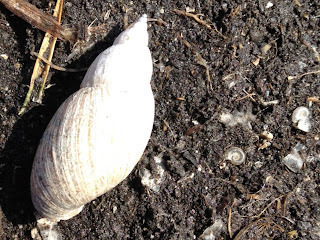 | ||
| Snail shells grow by slow accumulation, as habits do. |
Service: Even though I'm away from campus, my heart is still there. Everything I do as a professor winds up leaning back towards the classroom, which means towards my students. Nothing I do matters more than the people I do it with and for, I think. I must have written sixty letters of recommendation for students this year (which is more time-intensive than one might think). Sabbatical has also given me the chance to help some colleagues here and at other universities. I've been helping half a dozen friends who teach Classics, Philosophy, and Biology at other universities by reading and commenting on drafts of their essays and books. And I've done a lot of "double-blind" reviewing for six or seven academic publishers who want advice on whether to publish certain books or journal articles. Best of all has been time to collaborate with colleagues in far-off places, corresponding with professors and graduate students around the world about philosophy, ecology, Scriptural Reasoning, Henry Bugbee, Charles Peirce, C.S. Lewis, and other matters close to my heart. I list this as "service" but I could just as well call it "ways I've learned from other people far away."
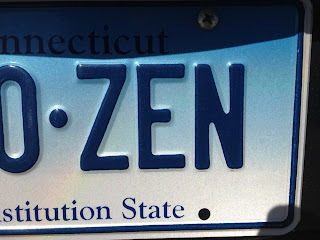 |
| The license plate on the rental car I had at a recent conference. |
Yes. The word "sabbatical" has its roots in a Hebrew word, shabbath, meaning "to rest." It would be a shame not to use the time to get some rest. Last summer I spent two weeks in a writing retreat sponsored by Oregon State at their Shotpouch Creek Cabin with my friend and co-author Matthew Dickerson. We were working, but what restful work it can be to live, think, and write quietly with a friend. We spent half of each day writing, and the other half talking, hiking, fishing, wading in the ocean. We borrowed some hymnals from an Episcopal church in Eugene and spent part of each evening singing as the sun declined behind the coastal range.
On my way to Oregon, I drove my sons to the coast last summer to look at colleges, to go whale-watching, and to watch some professional soccer matches. When I got home to Sioux Falls, I joined a gym and I became my son's rec league soccer coach. This is his last year of living at home with us, and I can't tell you how grateful I am to have this time with him before adulthood takes him off on the next leg of his life's journey. Despite all the work, and travel, and writing, I've had more time with my wife and my kids, and more time for self-care. I feel much healthier and fitter now than I did a year ago. I have a feeling my family is better off for that, too.
I wish everyone, regardless of their line of work, could have an experience like this every few years. It might remind us all what matters. It's expensive, I know. I took a hefty pay cut from an already modest salary to have this year off, and thankfully our savings have been enough to get us through. (And writing and lecturing makes me a few extra ducats to send to my daughter in college from time to time or to spend on my boys at home.)
No doubt some people will read this and wonder why my college is willing to pay me anything at all when I'm not showing up to work. The answer is that some colleges still take the long view. You have to put aside your monthly planner and get a calendar that measures time and value "not by the times but by the eternities" (pace Thoreau), that looks down the years the way a carpenter holds a plank to her eye and looks down the full length of the board rather than seeing only the grain of what is nearest. Money has been spent on me this year by people who thought it worthwhile to let me stretch from my cramped pose. They have let me drink from distant streams so that I can come back nourished not just by the Big Sioux and the Missouri but by the waters of Oregon and New York and Virginia - and in some sense by the Hippocrene itself.
So that's what I've been doing. I'm sorry I haven't been around campus much. In the long run, what I've been doing should make my return to campus a very good one indeed. I can't wait to tell you more about what I've learned this year once I return.
"To have more is not to be more"
In Lewis's novel Out of the Silent Planet, the antagonist Weston attempts to explain why his civilization is superior to another. He says,
For Weston, the annihilation of space and time is proof of advancement. I am reminded of Rabbi Heschel's words about the Sabbath in his book Between God and Man, where he advances a quite different view:
"Technical civilization is man's conquest of space. It is a triumph frequently achieved by sacrificing an essential ingredient of existence, namely time. In technical civilization, we expend time to gain space. To enhance our power in the world of space is our main objective. Yet to have more does not mean to be more. The power we attain in the world of space terminates abruptly at the borderline of time. But time is the heart of existence."
The conquest of space - that is, of gaining power over things and making them our servants - comes always at the expense of time, which we often expend as though we could withdraw from that deposit infinite sums without deficit.
Gratitude
It being Thanksgiving, I’m doing some reading about gratitude. Just read through part of Norman Wirzba’s Living the Sabbath: Discovering the Rhythms of Rest and Delight. Chapter 1 has a section on food - very apropos for Americans this week - and in particular on the production of food.
Wirzba’s contention, one that strikes me as probably right, is that the way we produce meat is violent and alienating, and that our willingness to accept food that comes to us this way is symptomatic of a culture that is more motivated by fear than by gratitude.
This could turn into a rant about locavorism, but I don’t want to go there right now. My point - and Wirzba’s, I think - is not that we need to change our food production, but that we need to ask ourselves why we produce food as we do. And that we ought to ask ourselves if we - and our world - wouldn’t be better off if we received what we have with gratitude. I find this very difficult, but I’m going to give it a try.
